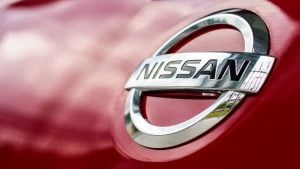Market Crash Warning: Don’t Get Caught Holding These 3 Auto Stocks
When the economy takes an eventual downturn, retail companies are the first to suffer, followed by the automotive sector. Currently, cash is becoming more expensive by the day, as consumers are reluctant to file for loans until the Federal Reserve begins cutting rates.
For car companies, this two-pronged attack can sometimes be fatal, despite financial potential. This is due to the fact that they rely on customers buying new cars to maintain replacement part revenues for years to come. Should a crash occur, investors may want to investigate which auto stocks to avoid, as the industry shrinks alongside the economy.
Furthermore, an auto company without a stable addressable market may find itself forgotten in the case of economic hardship. That’s because, when the chips are down, people want reliable and affordable cars they know won’t add to piling expenses in the home.
As such, automotive companies that rely on speculative hype or that do not have longstanding reputations could see their value drop dramatically.
Tesla (TSLA)

These days, it’s easy to beat up on Tesla (NASDAQ:TSLA), but that’s not why investors should be concerned about it in case of a crash.
Despite the 10% workforce reductions and the recent Cybertruck recall, the company still dominates the general public’s perception of electric vehicles. Thus, even though new challengers are consistently emerging, the company will likely continue to hold a sizeable market share in the EV market.
The issue for the company, however, is maintaining that hold, as it has made questionable decisions from the consumer’s perspective.
For example, the aforementioned Cybertruck has not seen more than 5,000 models on the road since its original announcement. Pair this with the fact that the truck certainly cost Tesla a significant amount to develop, and the writing is on the wall. Now, final production pricing puts unit prices anywhere between $80,000 to $110,000.
Such exorbitant pricing isn’t competitive in the pickup truck market and is reflective of why demand for Tesla cars is falling. Until the company finds a way to offer a truly affordable vehicle for the average consumer, its days of tremendous growth may remain behind it.
Xiaomi (XIACF)

An emerging Chinese player in the EV market, it’s not likely Xiaomi (OTCMKTS:XIACF) has anywhere to go but down. The overall U.S. government’s attitude towards Chinese companies has seen federal lawmakers calling for increased restrictions. Whether or not these come to fruition will not matter, as the long-term public perception of Chinese manufacturing has dwindled.
Furthermore, though up over 55% in the last twelve months, the company’s new SU7 electric car is far from profitable. Currently, Xiaomi is selling the EV at a loss, despite predictions it will deliver 100,000 vehicles to customers this year. Even more concerning is the fact that the company would have to sell 300,000 to 400,000 units per year just to break even on the car.
That’s a colossal task for a relatively new car company based in one of the teetering economies of the world. Should a stock market crash come along, the company will certainly see its gains wiped away as consumers forgo an unproven brand in favor of reliability.
Nissan Motor Company (NSANY)

Once a legendary company among car enthusiasts, there’s not much to get excited about Nissan Motor Company (OTCMKTS:NSANY) these days. The company has shown relatively lackluster financial performance over the last five years, with consistent value peaks and valleys.
Moreover, the company continues to underperform the industry, with its total market share down 0.12% from 2022 to 5.17% in 2023. Though the company’s luxury Infiniti brand saw a slight 0.03% increase at the same time, the general Nissan brand saw its market share drop to 4.76%.
Nissan closed out Q4 of 2023 with sales totaling 185,878 vehicles, reflecting a modest 5% increase year-over-year.
For investors, Nissan is one of the auto stocks to avoid due to stagnating financials and a lack of future trajectory. These factors make the stock particularly susceptible to a market downturn and are unlikely to be fixed without a generous restructuring of the company’s objectives.
On the date of publication, Viktor Zarev did not have (either directly or indirectly) any positions in the securities mentioned in this article. The opinions expressed in this article are those of the writer, subject to the InvestorPlace.com Publishing Guidelines.

